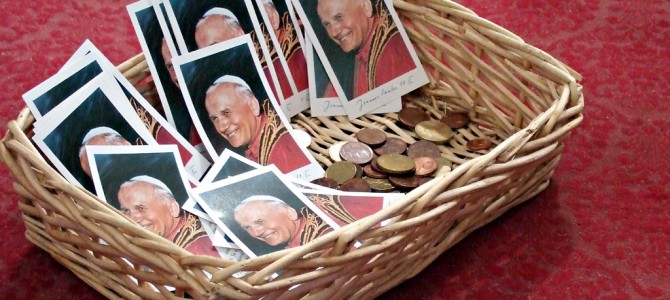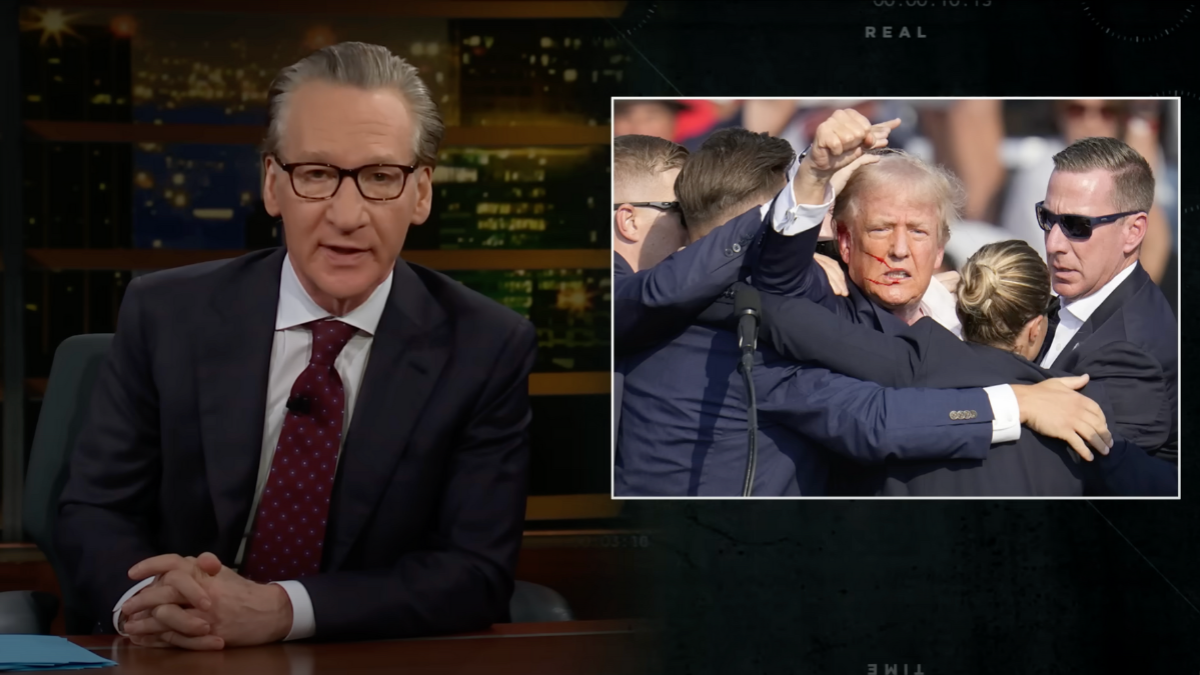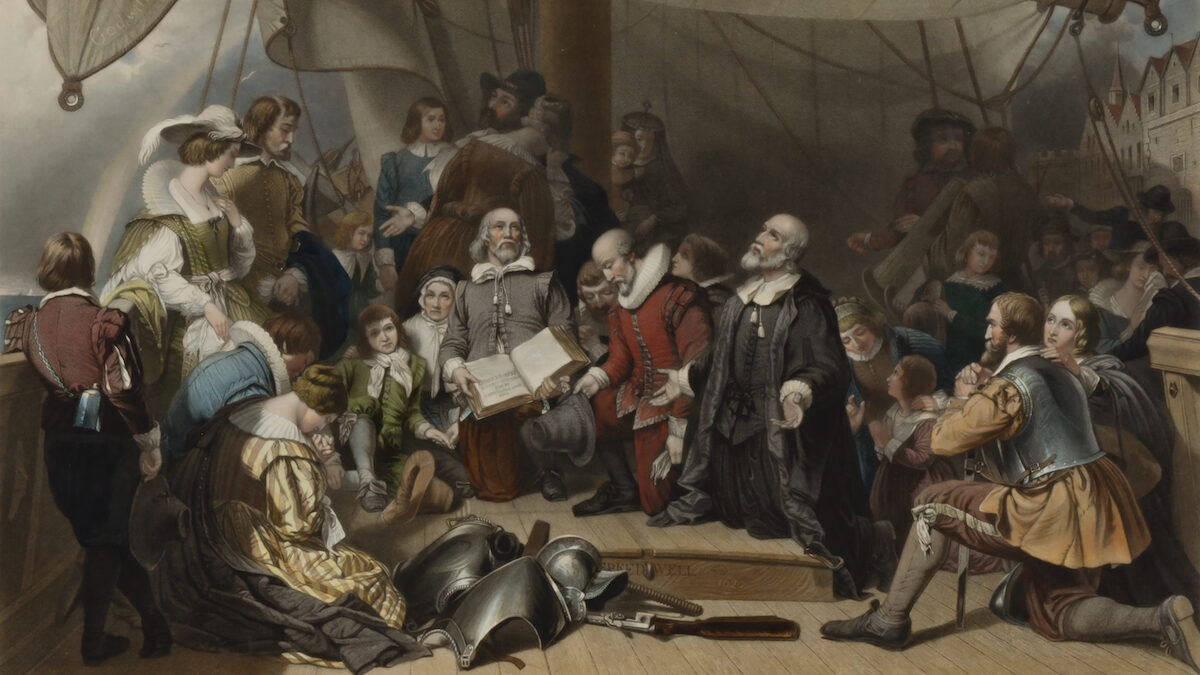
Celebrity culture has few defenders.
That’s why they call TMZ a “guilty pleasure.” No one believes hours spent catching up on drug-addicted child actors or the latest rumored baby-bump are a good use of their time. The personalities themselves, elevated for our consideration, are far from edifying. “Empty calories” is putting it charitably; partially hydrogenated trans fats is more like it.
The only thing worse than celebrity culture, is celebrity culture in the church.
The apostles styled themselves slaves of Christ, and the word “apostle” means “messenger” or “one who’s sent.” When the royal messenger gathers his own courtiers, something is dreadfully wrong. The veneration of the servant-preacher creates an irreconcilable conflict between the rock-star medium and the humble message, corrupting one or the other, or more often, both. The clichéd fallen televangelist has a predictable genesis.
Which brings us to this Sunday in Rome, where the Bono-esque Pope Francis, under the watchful eye of papa emeritata Benedict XVI, he of the ruby slippers, will conduct a the canonization mass for Pope John XXIII and Pope John Paul II. It’s like the Superbowl of Sainthood, Roman numerals and all.
They’re going to need a whole lot of white doves.
Celebrating Holiness
What could possible be wrong with such a celebration of holiness?
Perhaps a more apt analogy is Hall of Fame induction, or better yet, the Academy Awards. In an over-long ceremony, the church will put its best and brightest on display, carefully hand-picked and means tested by the members of its own Academy. Surely the mass will be a better use of four hours than the Oscars.
But let’s recognize it for what it is: an ostentatious commemoration of religious celebrities, past and present; a global media event; an opportunity to put the Roman church’s best foot forward. I.e., it’s PR.
The church isn’t just susceptible to celebrity culture; it generates it. American evangelicalism has more than its share of celebrity pastors. George Whitefield, Jonathan Edwards, Charles Finney, Billy Sunday, Aimee Semple McPherson have all been among the most famous and most recognizable figures of their day. Billy Graham even wears something of an untouchable papal tiara in his fading glory — What? He criticized Billy Graham?
But our religious pop culture can’t hold a candle to Rome’s pope culture and endless cataloguing of saints — somewhere between 921 and 10,000, depending on who is counting.
Yet with Rome, the grandeur and spectacle of it all somehow overwhelms and masks the fact that its trading on fundamentally the same motive that drives TMZ. It’s easy to make fun of the extremes of Americana religion, with Sister Aimee riding her motorcycle on stage, or Billy Sunday pitching a shutout against the devil. But the original religious celebrities are the canonized saints — even if they have permanently left the building.
But seriously, what does sainthood or Popedom have to do with TMZ? It’s not like these guys are crashing the Popemobile (though there was a good bit of palace intrigue with the resignation of Benedict). John Paul II, for one was a world leader of profound moral courage. Isn’t it much more edifying to celebrate his life than the best 13 films of 2013?
Let me put the question differently: Why do most of us intuitively recognize that celebrity pastors are a problem — even that “celebrity” itself is a problem — yet celebrate the uber-celebrity pastor, the one Vicar of Christ in Rome? And why do we venerate a virtual handful of canonized saints out of global Christianity, when the standard apostolic practice recorded throughout the New Testament church is to greet every baptized Christian as a saint, and to thank God for their holiness?
My hunch is that there is a deep — and not necessarily healthy — desire to religiously venerate our fellow man. His holiness Bergoglio from Buenos Aires is endearing and warm; His holiness Yahweh of Sinai is a consuming fire.
This is precisely why the argument from tradition for the veneration of saints is so strong and compelling. It appeals to a deep human desire to elevate the best in us all, to identify a champion and leader of our tribe. It is quite frankly entirely natural, and laudable, for a religious community to hold in awe a martyr, one who would rather die than betray his Lord. I know I do. It is natural to remember them and lift them up as role models and examples to emulate when the next wave of persecution roles over the church. A church called to suffer in the world, like it’s Savior did, needs some encouragement.
However, for a Reformed Christian such as myself, the Roman Catholic teaching about the canonization of saints goes far beyond such recognition. Indeed, it is one of the most offensive doctrines promulgated by the church, the Reformation in a nutshell. And not just because it is profoundly unbiblical, unseemly, and often at the lay level, rankly superstitious. Rather, and far worse, because it reflects a fundamentally human, not divine, perspective on holiness, both the holiness of man, and the holiness of God.
A Human View Of Holiness
While the media is not the most Catholic friendly bunch, they are still relatively in thrall to Francis. They are likely to soft-pedal the doctrinal niceties of sainthood while broadcasting Sunday’s camera-friendly spectacle. So a word or two are in order about what exactly canonization entails.
In canonizing a saint, the Holy See of Rome is officially recognizing and enrolling the departed in a list of those who have entered heavenly glory. (Problem number 1: Not all departed are in heavenly glory.) This is the final step in a long process of reviewing various proofs demonstrating that one’s life, death, and post-death performance merits such recognition. This includes the demonstration of two miracles performed through the saint’s intercession, not to mention the living faithful’s invocation of the saint.
To what end? Why does the church bother sorting out the rather dubious matter of which deceased believers have passed through the fires of purgatory? Rome teaches that the saints are aids to those yet alive, not merely as examples of holiness, but also as additional intercessors before the throne of God. The prayers of the saints add virtue and power above and beyond believers’ prayers to God himself, on behalf of Christ. So it is crucial to the greater comfort of the church that we know which of the deceased are valid intercessors. [A serious question: If we only pray to canonized saints, and a miracle attributed to the invocation of a saint is required for canonization, aren’t we stuck with circularity? Is this the spiritual equivalent of trading in futures?]
There is of course zero biblical evidence for this practice. Nowhere in Scripture does God’s word command the church to compile such lists, nowhere are followers of Christ instructed to venerate their fellow men and cry out to them in their hour of trial. Indeed, it is prohibited. It is better to take refuge in the Lord (Psalm 118:9), “put not your trust in princes, in a son of man, in whom there is no salvation” (Psalm 146:3). The Apostle Paul, when some sought to offer him obeisance, replied “we are men, of nature like you, bringers of good news.”
And here is the twofold nub of the offense. First, the canonization of saints encourages and indeed validates the veneration and invocation of creatures, not the Creator, trading on their power and goodness. It does so on the basis of their personal merits, howsoever fueled by the grace of God. God, however, hears our prayers because he alone is omniscient and good. But the saints, even in glory, are still mere men. What gives us reason to believe they can hear us when we cry out to them?
Worse than what it lifts up, is what the practice of canonization tears down, namely the priestly work of Christ, and the intercession of the Holy Spirit. The New Testament calls Jesus the only perfect high priest, the one who is appointed to act on behalf of men before God. He is the one mediator between man and God. It is, further, “the Holy Spirit who intercedes for the saints (us!) according to the will of God.”
There is no more loving, no more merciful, no more powerful, or well-positioned person we would rather invoke. Christ alone sits in the place of power, with all authority over heaven and earth, the very right hand of God. There is no lack to his prayers, and no need for more merit. He did it all, and still does it all.
But this message, crystal clear in Scripture, is a bit otherworldly and offensive. Jesus commands us to use a simple, non-repetitive prayer, addressed to our Father, who is in heaven, putting our faith in things unseen.
In short, it doesn’t make for a very good awards show.
Brian Lee is the Pastor of Christ Reformed Church, in Washington, DC’s Logan Circle neighborhood.









